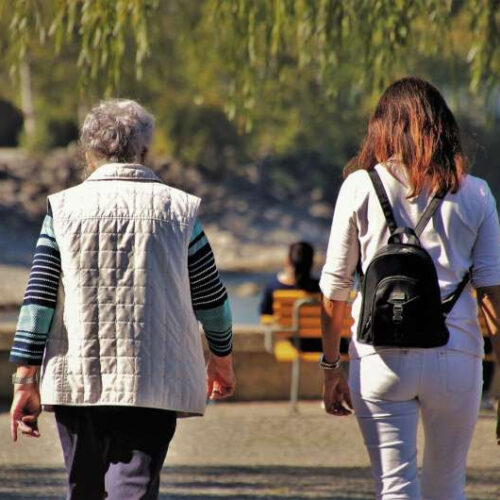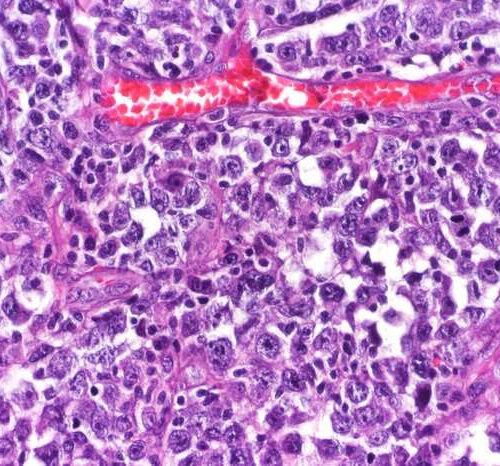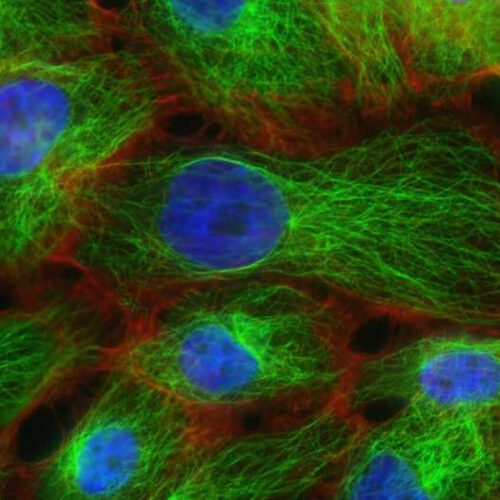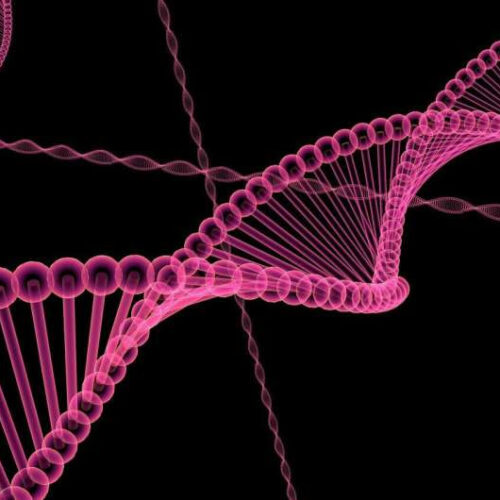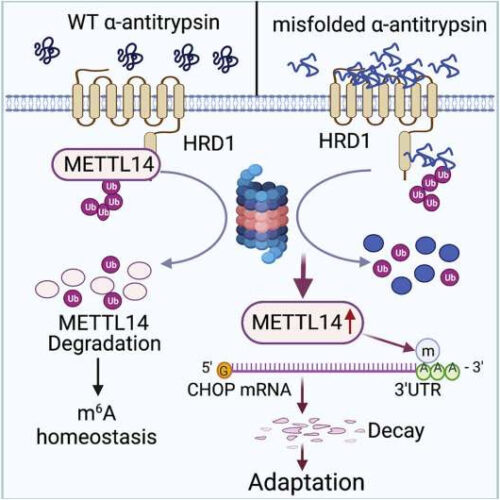(HealthDay)—If the pandemic is causing you to lose sleep at night, you’re not alone. About 56% of Americans say they have what experts have dubbed “COVID-somnia,” an increase in sleep disturbances. Of people reporting these disturbances, 57% say they’re having trouble falling or staying asleep. About 46% are sleeping less; 45% are experiencing worse sleep; and 36%...
Year: <span>2022</span>
Cervical screening without a speculum boosts uptake among older patients
by King’s College London Credit: CC0 Public Domain Offering cervical screening without a speculum increases uptake among older women, new research has found. The study, published today in the British Journal of General Practice and led by Dr. Anita Lim from the School of Cancer & Pharmaceutical Sciences, was conducted at 10 GP practices in East London. A...
Lymphoma cell metabolism may provide new cancer target
by Weill Cornell Medical College Diffuse large B-cell lymphoma. Credit: CoRus13, distributed under a CC BY-SA 4.0 license Aggressive and relatively common lymphomas called diffuse large B cell lymphomas (DLBCLs) have a critical metabolic vulnerability that can be exploited to trick these cancers into starving themselves, according to a study from researchers at Weill Cornell Medicine...
Gene involved in sense of smell could play a role in the spread of breast cancer to the brain
by Massachusetts General Hospital Credit: Unsplash/CC0 Public Domain An olfactory receptor gene that aids in the sense of smell may also play a role in the metastasis of breast cancer to the brain, bones and lung, researchers from Massachusetts General Hospital (MGH) have found. The team further discovered that inhibiting the gene, OR5B21, significantly decreased the...
Secondary structures in DNA are associated with cancer
by Lila Reynolds, Northwestern University Credit: CC0 Public Domain A new cancer study reports that DNA manifested as knot-like folds and third rungs between DNA’s two strands may drive cancer development, and an important regulatory enzyme could be associated with the formation of these unusual structures. Scientists from Northwestern Medicine and the La Jolla Institute for...
New study could inform treatment and prevent heart attack in diabetic patients
by Baker Heart and Diabetes Institute Myocardial Infarction or Heart Attack. Credit: Blausen Medical Communications/Wikipedia/CC-A 3.0 A new study by researchers at the Baker Heart and Diabetes Institute and Monash University could help inform treatment and prevent serious events like a heart attack or death in diabetic patients at high risk of serious cardiovascular events....
First clinical trial of innovative cancer drug targeting HSF1 pathway begins
by Institute of Cancer Research Credit: Institute of Cancer Research The first cancer patients are to receive doses of an innovative new drug that targets a master regulatory pathway in cells, as part of a new clinical trial. The drug, called NXP800, was discovered at The Institute of Cancer Research, London, and targets the pathway regulated...
COVID transmission influenced by blood transmission rules
by Sam Wood, University of Kent Credit: testalize-me-IfhHgroyKsc-unsplash by https://unsplash.com/@testalizeme } Accumulated evidence worldwide shows that blood type affects the risk of SARS-CoV-2 infection, with blood Type O being less susceptible and non-O blood types more susceptible. The results of a new data model by Dr. Peter Ellis, Senior Lecturer in Molecular Genetics and Reproduction at the...
Study reveals potential therapeutic target for genetic liver disease
by Melissa Rohman, Northwestern University Graphical abstract. Credit: DOI: 10.1016/j.molcel.2021.10.028 Northwestern Medicine investigators have discovered the molecular mechanisms underlying a rare genetic mutation that increases the risk of severe liver disease, according to findings published in Molecular Cell. The study, led by Deyu Fang, Ph.D., the Hosmer Allen Johnson Professor of Pathology, may reveal potential therapeutic...
Researchers discover how the sponginess of stem cell nuclei controls cell differentiation
Reviewed by Emily Henderson, B.Sc. Jan 3 2022 Researchers from Tokyo Metropolitan University have discovered how the sponginess and stickiness of stem cell nuclei controls how they “differentiate” into specialized cells. They found that the nucleus starts solid-like but becomes more fluid-like over time. Less force is transmitted to its inner parts, leaving cells to...


